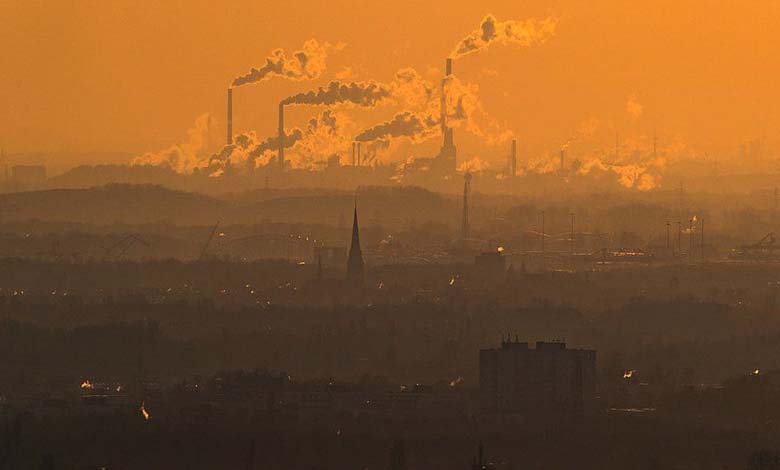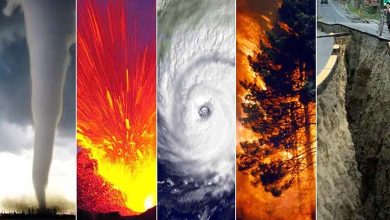How Would a 4°C Temperature Increase Affect Individual Income?

A recent study conducted by researchers has issued a stark warning about the devastating economic consequences of climate change. The study suggests that if global temperatures were to rise by 4°C, the world could experience a dramatic reduction in individual wealth, with losses reaching up to 40%. This alarming figure is twice as high as previous economic estimates, highlighting the growing concerns over the underestimated financial risks associated with global warming. The findings, reported by the British newspaper The Guardian, shed light on the severe economic damage that could unfold if urgent action is not taken to curb rising temperatures.
-
Innovation of Smart Clothing Automatically Adapting to Changing Temperatures
-
“Death Valley” in America sets temperature record
Traditional Economic Models Underestimate the True Impact of Climate Change
The study points out that traditional economic models have largely failed to accurately measure the full scope of climate change’s effects. One major flaw in these models is their inability to account for the increasing frequency and severity of supply chain disruptions caused by extreme weather events. From hurricanes and wildfires to prolonged droughts and severe flooding, these climate-induced disasters are placing unprecedented strain on global economic systems. As natural disasters become more common, industries worldwide are struggling to maintain stable supply chains, which in turn affects production, trade, and consumer prices.
Even a 2°C Increase Could Lead to Significant Economic Losses
While the prospect of a 4°C temperature increase is particularly concerning, the study also warns that even a more moderate rise of 2°C would still result in significant economic downturns. Researchers estimate that under this scenario, the average global individual income could decrease by 16%, a figure that is much higher than previous forecasts, which predicted only a 1.4% reduction. This stark contrast highlights the urgent need for policymakers to reassess their economic projections and consider the real costs of inaction.
-
The United Nations Warns of “Catastrophic Rise” in Temperatures
-
Record-Breaking Temperatures Hit North America in February
Dr. Timothy Neal: Previous Economic Models Failed to Account for Climate Disasters
Dr. Timothy Neal, the lead author of the study and a researcher at the University of New South Wales, explained that earlier economic models were overly optimistic in their assessments. These models did not adequately take into account the devastating effects of climate disasters—such as floods, hurricanes, and prolonged droughts—on key economic sectors. As a result, policymakers have historically underestimated the risks posed by climate change, leading to insufficient measures to mitigate its impact.
Professor Andy Pitman: Indirect Effects of Extreme Weather Events Are Just as Dangerous
Echoing Dr. Neal’s concerns, Professor Andy Pitman, a co-author of the study, emphasized that the economic risks of climate change extend beyond rising temperatures alone. The indirect consequences of extreme weather events, including widespread damage to infrastructure, disruptions to global transportation networks, and interruptions in energy supplies, pose an equally significant threat. These disruptions have a cascading effect on economies, causing delays in production, increased costs for businesses, and reduced consumer purchasing power.
-
European Cities Record a Record High in Temperature
-
Global Daily Temperature: A Record for the Second Consecutive Day
Relocating Economic Activities Is Not a Viable Solution
One common argument in climate change discussions is that economic activities could simply be relocated to cooler regions, such as Russia or Canada, to mitigate financial losses. However, Professor Pitman strongly refuted this idea, explaining that global economies are deeply interconnected. The impact of climate change on one region inevitably affects others, making it impossible to fully shield any country or industry from the economic turmoil that comes with rising global temperatures.
Economists Criticize the Assumption That Economies Will Adapt Naturally
The study’s findings have sparked criticism of the longstanding assumption that economies will naturally adapt to climate change over time. Experts, including Professor Frank Jotzo from the Australian National University, argue that this perspective is dangerously flawed. He points out that many economic infrastructures, including transportation, housing, and energy systems, are not built to withstand the extreme conditions that climate change will bring. Without proactive adaptation measures, the global economy will become increasingly vulnerable to environmental shocks.
-
5 Common Summer Health Issues and How to Prevent Them
-
Climate Change and Respiratory Issues: The Role of Heat and Drought in Bronchial Inflammation
Key Factors Such as Migration and Rising Sea Levels Are Often Overlooked
A previous report by the Institute of Actuaries had already warned about the dangers of neglecting crucial factors such as human migration and rising sea levels. These elements add additional layers of complexity to the economic crisis caused by climate change. For instance, as sea levels rise, entire coastal cities may become uninhabitable, forcing mass displacement of populations. This, in turn, could lead to economic instability, increased unemployment, and heightened geopolitical tensions as nations struggle to accommodate climate refugees.
Risk Management Experts Call for Immediate Action
Mark Lawrence, a renowned expert in risk management, independently reviewed the study’s findings and described them as highly reliable. He stressed that if governments and corporations fail to implement serious measures to curb carbon emissions, the financial consequences will be far greater than previously anticipated. The longer decision-makers delay action, the more difficult and costly it will become to reverse or mitigate the damage.
-
Japan’s Worst Wildfire in 50 Years Brought Under Control
-
Scientists Warn That the World Has Entered a “New Climate Era”… What Is the Cause?
Governments Face a Crucial Decision: Act Now or Face Irreversible Economic Collapse
The study ultimately presents a stark reality: governments around the world are now at a crossroads. They must choose between taking immediate and decisive action to combat climate change or facing catastrophic and irreversible economic consequences. The longer global leaders wait to implement sustainable policies, the more severe the financial toll will be. With the warning signs already evident, the time for complacency has passed—only bold, coordinated efforts can prevent a future of economic devastation caused by an unchecked climate crisis.












